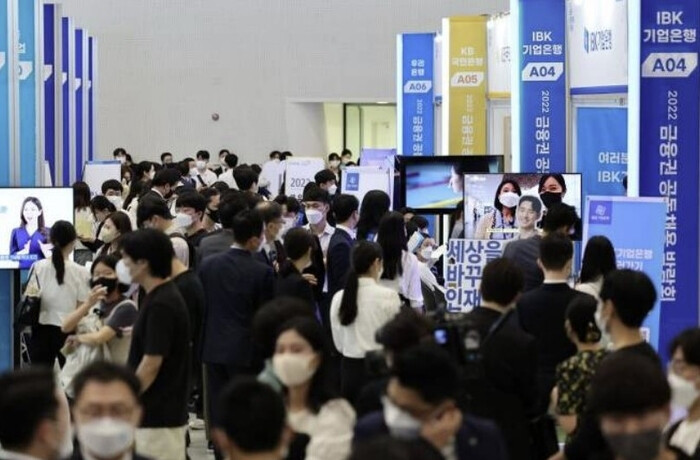
Seoul, South Korea – A new analysis has revealed that the starting salaries for university graduates employed at large South Korean companies have exceeded 50 million won (approximately US$37,000) annually.
The Korea Employers Federation (KEF) released a report on Wednesday titled "Analysis of Starting Salaries for University Graduates in Korea and a Comparison with Japan." The report, based on data from the Ministry of Employment and Labor's 2023 Survey on Employment Status by Employment Type, found that the average starting salary for university graduates at South Korean companies with 300 or more employees was 50.01 million won, excluding overtime pay.
In contrast, the average starting salary for graduates at companies with fewer than five employees was 27.31 million won, just 54.6% of that offered by larger firms. The report also showed that starting salaries for graduates at companies with 30 to 299 employees averaged 35.95 million won, while those at companies with 5 to 29 employees averaged 30.70 million won.
A comparison between South Korea and Japan revealed that South Korean graduates, regardless of company size, earned higher starting salaries than their Japanese counterparts. The average starting salary for all university graduates in South Korea was 45,401 US dollars, compared to 34,794 US dollars in Japan.
The disparity between large and small companies was even more pronounced in South Korea. While the average starting salary for graduates at large South Korean companies (500 or more employees) was 57,568 US dollars, the figure for large Japanese companies (1,000 or more employees) was only 36,466 US dollars.
"The significant gap in starting salaries between large and small companies in South Korea is primarily due to the excessively high starting salaries offered by our large corporations," said Ha Sang-woo, head of the KEF's Economic Research Division. "This is causing a mismatch in the job market, exacerbating the wage gap between large and small companies."
[Copyright (c) Global Economic Times. All Rights Reserved.]






























